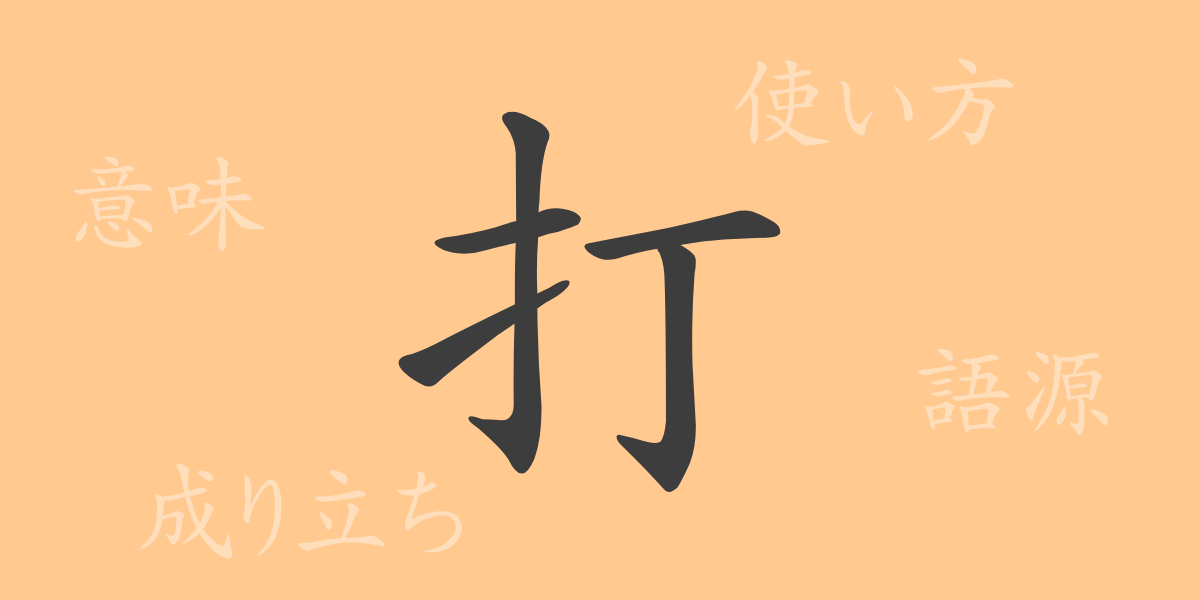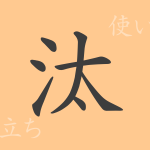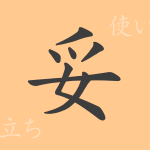The beauty of the Japanese language is reflected in its unique characters. Kanji, with its complexity and deep meanings, is a vital element of Japanese culture and language. This article focuses on the Kanji “打” (うち) (da), exploring its origins, modern usage, and significance across various scenes from sports to business and traditional Japanese culture. We will delve into the meanings embedded in “打” and how it integrates into the daily lives of Japanese people.
Origin of “打” (da)
The Kanji “打” originates from ancient China, developing from pictographs that depicted a hand striking an object. This action evolved to represent the impact on something. Over time, it has been adopted in various cultures and has been a long-standing character in Japan as well.
Meaning and Usage of “打” (da)
The Kanji “打” fundamentally means “to hit” or “to strike.” It refers not only to physical impact but also carries metaphorical meanings. For example, in business, “打ち合わせ” (uchiawase) refers to meetings or discussions. In sports, terms like “打球” (dakyuu), meaning a hit ball, or “打者” (dasha), meaning a batter, are commonly used.
Readings, Stroke Count, and Radical of “打” (da)
The Kanji “打” is foundational in Japanese linguistics, showing basic reading and structure.
- Readings: On’yomi “ダ” (da), Kun’yomi “うつ” (utsu)
- Stroke Count: 5 strokes
- Radical: Hand (てへん) (tehen)
Idioms, Phrases, and Proverbs Using “打” (da) and Their Meanings
There are numerous idioms, phrases, and proverbs that include the Kanji “打,” enriching the nuances of the Japanese language. For instance, “打ち明ける” (uchiakeru) means to confess or reveal one’s thoughts, while “打ち解ける” (uchitokeru) denotes becoming friendly or opening up emotionally. The proverb “打てば響く” (uteba hibiku) describes someone who is honest and responsive. These expressions enhance the richness of the Japanese language.
Conclusion on “打” (da)
The Kanji “打” is widely used in Japanese, altering its meaning across different contexts. From physical actions to psychological interactions, the influence of this single character is immeasurable. In Japanese language and culture, “打” serves more than just a literal role; its profound meanings and applications are indispensable elements of communication among Japanese people. Through this article, you have gained an understanding of the rich history and contemporary usage of “打.”

























